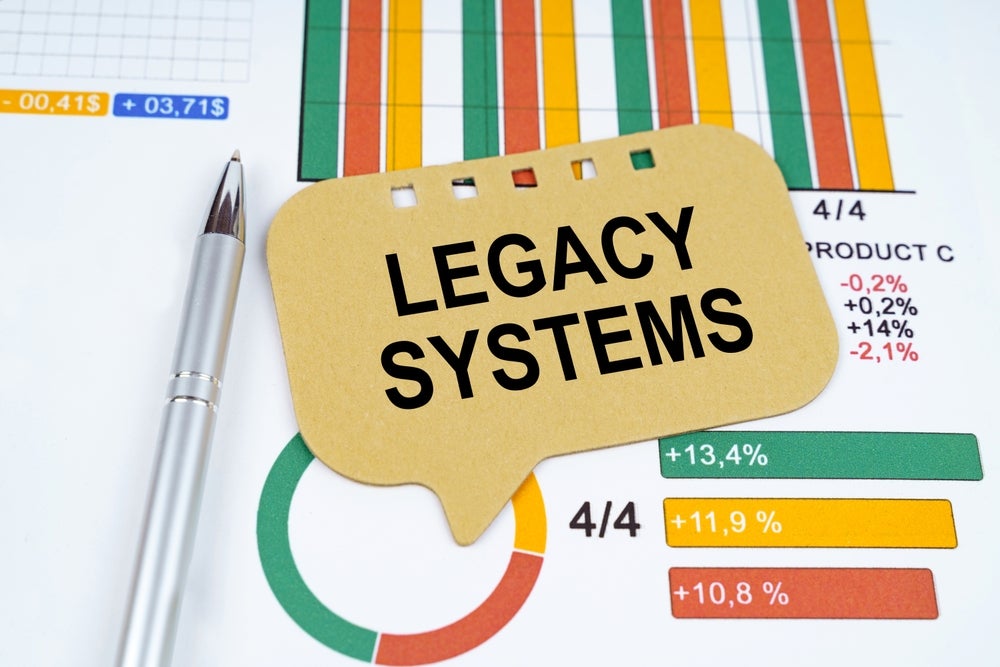
Because the insurance coverage trade develops and makes use of recent applied sciences, many companies discover themselves weighing up the dangers and rewards of upgrading from legacy techniques and tech. Andrew Harrington writes
Whereas ditching outdated expertise in favour of newer options could appear expensive upfront, persisting with antiquated techniques usually proves extra financially and operationally expensive over time. The advantages of modernising additionally closely outweigh the short-term prices, giving organisations who put money into their expertise a aggressive benefit.
Crucially, preserving expertise updated and streamlined improves shopper expertise. Whereas this has all the time been key, the FCA’s Shopper Obligation implementation has introduced shopper safety into even sharper focus during the last 12 months. Simple to make use of expertise can and can make the distinction in the case of delivering really consumer-centric services and products. Those that fall behind danger their prospects, and finally their enterprise.
The expensive burden of legacy tech
Though new expertise and upgrades could appear inordinately costly, outdated techniques will doubtless find yourself costing extra over time. The bills related to upkeeping legacy techniques, together with upkeep, regulatory modifications and safety updates and patches, are extremely financially draining for companies. Based on PWC, on common about 70% of an insurer’s annual IT finances is spent on sustaining its legacy techniques and tech. And these techniques more and more will not be match for goal.
Repeatedly deferring the improve of older expertise creates a mounting burden often known as ‘technical debt’. When corporations delay essential updates, this debt accrues, resulting in extra advanced and expensive migrations sooner or later. As opponents embrace trendy techniques, these shackled by technical debt danger shedding the aggressive benefit and falling additional behind. The longer an organization waits to improve, the tougher and costlier the transition turns into.
Defending knowledge
One of the vital pressing dangers related to legacy expertise is the heightened risk of safety breaches. In an period the place knowledge safety is paramount, older techniques usually lack the sturdy safety measures required to fend off subtle cyber threats. Insurance coverage corporations are prime targets for hackers as a result of they’re entrusted with huge quantities of delicate buyer knowledge. Counting on outdated safety protocols can go away these corporations and their policyholders susceptible, liable to expensive knowledge breaches and tarnished reputations.
Entry essentially the most complete Firm Profiles
in the marketplace, powered by GlobalData. Save hours of analysis. Acquire aggressive edge.

Firm Profile – free
pattern
Thanks!
Your obtain e-mail will arrive shortly
We’re assured in regards to the
distinctive
high quality of our Firm Profiles. Nevertheless, we would like you to take advantage of
helpful
determination for your small business, so we provide a free pattern which you can obtain by
submitting the under kind
By GlobalData
Legacy techniques additionally undergo from restricted compatibility with trendy expertise and automatic techniques. For insurance coverage companies, seamless integration of knowledge and techniques is essential for offering environment friendly companies and precious analytics. Legacy techniques danger creating silos of knowledge, hindering collaboration between departments and obstructing alternatives for innovation. Mixed, this may hamper a agency’s means to reply quickly to market modifications and evolving buyer calls for.
Shadow IT turns into a distinguished downside with legacy platforms, the place operational departments battle to fulfil their day-to-day duties with older expertise. Companies are pressured to revert to creating off-platform and uncontrolled options, which is a high-risk technique if enterprise essential choices are being comprised of primary spreadsheets. The worldwide financial affect of knowledge loss linked to shadow IT is estimated to be within the area of $1.7trn per yr, in accordance with findings from an EMC research.
Adaptability
The insurance coverage sector should adapt to ever-evolving regulatory and compliance necessities. Counting on older techniques to reply to such modifications is extra more likely to go away corporations non-compliant with the newest knowledge safety and monetary laws. As such, insurance coverage companies danger exposing themselves to extreme penalties, and probably authorized motion, in the event that they fail to stick to new compliance requirements. Legacy expertise usually lacks the flexibleness and technical functionality to adapt shortly, making it difficult to remain on high of regulatory developments.
One of the vital vital dangers of clinging to legacy expertise is lacking out on alternatives for innovation and progress. Firms that depend on outdated techniques battle to supply the extent of service and personalisation that policyholders now anticipate. They could miss out on options like real-time reporting, API integrations, pricing algorithms, AI-assisted functions, and superior buyer insights, built-in companies, machine studying and even cloud computing in some instances. This stagnation dulls any aggressive edge and results in diminished buyer satisfaction.
Getting into the digital age
The dangers of counting on outdated expertise are substantial for insurance coverage corporations striving to remain aggressive, defend customers and policyholders, and meet compliance requirements in immediately’s digital panorama. Whereas abandoning legacy techniques requires upfront funding, the long-term benefits for safety, effectivity, innovation and progress make this a sensible monetary determination. Given the rising prices and dangers related to technical debt, outdated safety protocols, integration challenges and stagnated innovation, migrating to trendy options is crucial for insurance coverage corporations to thrive into the longer term.
With cautious planning and execution, the transition course of might be managed easily to totally realise the advantages of digitalisation. With out taking the leap, the trade will probably be left carrying the burden of technical debt and outdated techniques for a few years to return.
Andrew Harrington is chief info officer at insurtech Ripe